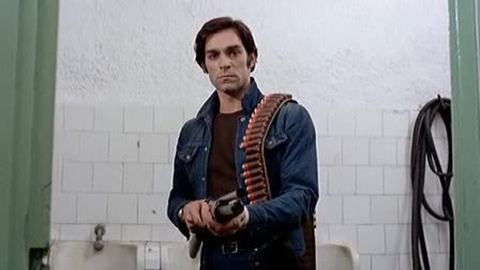 Another highly enjoyable Italian crime film by Enzo G. Castellari, The Big Racket is a fantastic display of machismo in it's lead character, Nico, who faces off against the meanest, baddest guys on the planet. I just love how aggressive these films are in every possible way. They really are mean spirited stories that show the world as a ruthless place where the bad guys do go out of their way to do things as wrong and messed up as possible. This is pretty much a non stop action-fest where the action sequences are all well designed and choreographed. All this is filmed with a ton of style which includes an overabundance of slow-motion used in the best possible way, surveillance style zooms, and some frantic camera movements and editing. My favorite part of this film without a doubt revolves around the father figure whose daughter is raped by the evil racket. First of all, the rape sequence is quite effective and emotionally resonant and what ensues involving her father's transformation into a lunatic is so much fun to watch. As funny as it sounds, Enzo G. Castellari's The Big Racket is an action film which Hollywood should aspire to be, having no concerns about making the viewer uneasy while going all out for what it wants to achieve. 8.25/10
0 Comments
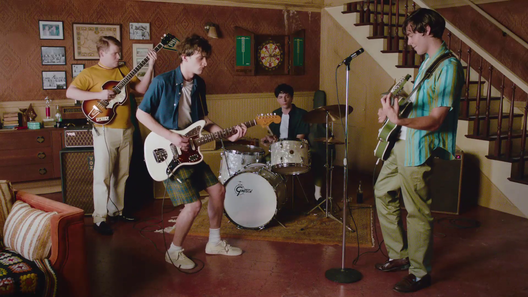 Taking place in the 1960s amidst the Assassination of John F Kennedy, David Chase's Not Fade Away tells the story of Douglas, an independent teenager, who becomes determined to start a Rock band. Growing up in a stern and conservative household Doug doesn't share the same sentiment as his parents on many social issues, leading him to become a free spirit, forming a Rock band with his friends in the hopes of making it big. David Chase's Not Fade Away is a coming of age story driven by the power of music. Probably the greatest aspect of Not Fade Away is its ability to capture the time period in significant detail. The film touches on lots of issues like Vietnam, the sexual revolution, and civil rights, doing so in both grand and subtle ways. Douglas firmly represents the changing youth culture, with the expanding gap between the older and younger generation when it comes to social issues being explored through his relationship with his ultra-conservative parents. Thematically the film is all about finding oneself and never giving up in the pursuit of that dream. While Not Fade Away achieves this through Doug's character journey, I never felt very much attachment to the character. I can't be entirely sure whether it was simply the way the character was written or John Magaro's performance but Douglas was far too one-note and bland for me as a central protagonist. At times he feels more like a caricature of youth culture in the 60s than a living, breathing human being which left me at a distance from really embracing the film on an emotional level. David Chase's Not Fade Away does a fantastic job at capturing the setting of the 1960s but unfortunately the main protagonist is too one-note for the film to become something truly special. 6.75/10 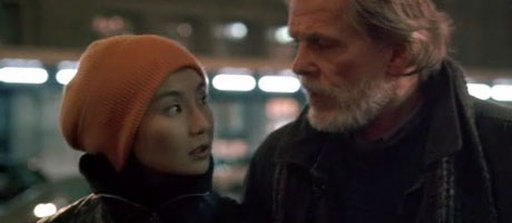 Lee is a faded rock star who lives with his wife, Emily, a former host of a European music video show, in Canada. Lee and Emily are both addicted to heroin and have been battling drug addition for years. When Lee dies from an OD, Emily finds herself charged with possession and spends 6 months in prison. When Emily is finally released from prison, she is eager to meet her son Jay but Albrecht, Lee's father, gives Emily an ultimatum: get clean or never reconnect with Jay. Olivier Assayas' Clean is an intimate look at drug addiction and the road to redemption which is only elevated by its phenomenal lead performance. While there are tons of movies dealing with addiction and recovery, Clean is a film that by and large escapes the cliches of the genre. Assayas never apologizes nor shows embarrassment in capturing Lee's addiction and parental concerns, simply giving us a genuine, gritty portrait of her struggle. Overly dramatic moments and/or false sentimentality are also held to a minimum with Assayas using an abundance of handheld to create the gritty, realistic feel centered around Emily's issues. While the film never chooses sides in regards to Emily, Clean is able to make her somewhat relate-able in showing a broken women who is alone and desperate to get back to her son. Maggie Cheung is fantastic as Emily, but I believe Nick Nolte's performance as Albrecht is over-looked and under-valued. Personally, I really responded to this character, a man who is torn between everyone blaming Emily for Lee's death and his willingness to forgive and see his grandson be raised by his real mother. Clean is a somewhat gritty film about addiction and ultimately redemption, that ultimately achieves what it strives for because of its direction and performances. 8/10 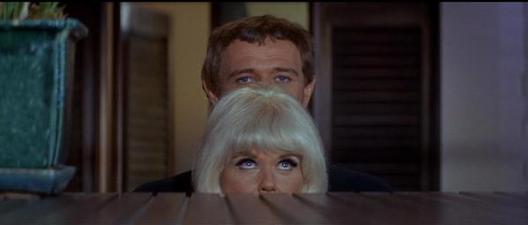 Patricia Fowler, an industrial spy, is hired to work undercover at a rival cosmetics company. While posing as a low-level employee, she steals the new formula which the company intends to take to market. While Patricia is under the impression that this was a simply safe assignment, she soon learns that the company is also involved in a deadly game of international drug-smuggling, where other spies are willing to do anything to ensure their narcotics make it to the masses. Frank Tashlin's Caprice is an odd mixture of comedy and thriller making it everything but your typical spy film. With Tashlin's signature style, Caprice is a spy film loaded with incredibly playful sequences, including lots of comedic musical cues and comedy set pieces that certainly make for a unique experience. Due to an abundance of comedic set pieces as well as Doris Day being the lead, Caprice is a film that straddles the line between being a spy film and being a parody/satire of a spy film. For stretches this works well, with Tashlin's bright and colorful palette in full effect but this also seems to conversely affect the success of the narrative. Caprice feels very uneven throughout its running time, leading the story to be overly convoluted and hard to follow at times. I could see how some of this was by design, particularly as another attempt at parody, but Tashlin is far too interested in the narrative and its outcome for this to be completely intentional. Frank Tashlin's Caprice is a unique and interesting riff on the Spy genre, yet it never manages to succeed on both the comedic and dramatic levels necessary to make it an exceptional piece of film-making. 7/10 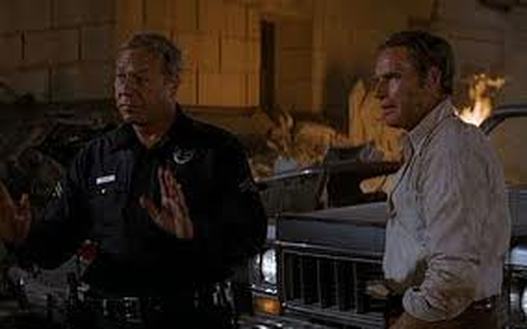 The opening credits of Earthquake are really fantastic with a shaky helicopter shot panning over the city of Los Angeles with a heart-thumping urgent score in accompaniment. The camera ends at a dam which over looks the city, the place where the inciting incident happens, starting this impending disaster. This simple credit sequence creates a nice sense of dread to start off the film, though I'm certain it's overlooked by many. Mark Robson's Earthquake is one of the more iconic disaster flicks to come out of Hollywood, following a familiar structure that consists of a gigantic ensemble cast who we follow before, during, and after the disaster. By today's standards, Earthquake is a film that takes its time to get going, spending a lot of time developing the various characters and letting the audience get to know them. Like most films of this pedigree there are some characters who are silly and/or worthless, and a few who are worth exploring and investing in. The two most worthy being the ex-football star (Charlton Heston) who is extremely successful but unhappily married to an estranged spoiled rich wife (Ava Gardner), and the disenchanted police officer (George Kennedy) who plays by his own rules, frustrated with the corrupt system. Earthquake isn't a completely cynical film but it certainly spends time to capture both the positive and negative sides of humanity in the face of tragedy. The special effects of Earthquake are certainly one of the highlights of the film, especially considering it is one of the last big scale Hollywood films that used all practical effects. Mark Robson's Earthquake is probably a little more iconic then it deserves to be but there is no denying the thematic and narrative groundwork which would be copied and mimicked even to this day. 6.75/10 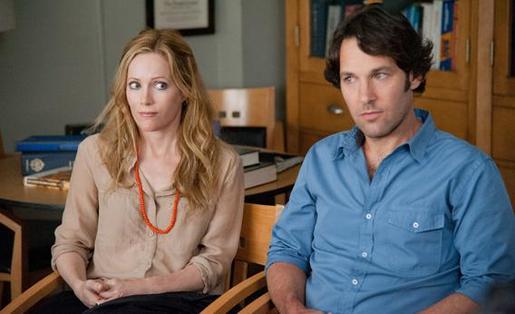 Pete and Debbie are married with two daughters living in suburbia Southern California. Both Pete and Debbie have just turned 40 years old, which for them signifies the moment where their lives drift into complacency and they become too old to function. The stresses of life have certainly put a strain on their relationship with financial and intimacy issues threatening to tear them apart for good. Judd Apatow's This is 40 is more drama than comedy, attempting to show a intimate portrait of this couple struggling to accept their age in Southern California. This is 40 has the same problem as nearly all of Apatow's films in that its length isn't justified, yet the film isn't as fat as some of his other recent work. While I was watching This is 40 I found myself impressed early on with how much Judd Apatow has matured as a writer. The film felt more genuine in the beginning but as it progressed I realized Apatow hasn't completely been able to separate himself from the juvenilities of his writing. Don't get me wrong I like that humor at times, but this was a film where genuine drama and silly comedy were out of rhythm. The strongest aspect of This is 40 is Paul Rudd and Leslie Mann's chemistry. The two of them play off each other so well that it carries the film for stretches solely responsible with keeping you invested. As a matter of fact, the entire cast really is fantastic with Albert Brooks and Jonathan Lithgow being particularly great as the two fathers of Paul and Debbie respectively. This is 40 is most likely Judd Apatow's most mature film to date but he has still yet to succeed in making a film that truly touches the viewer on a personal level while making them laugh. 6.25/10 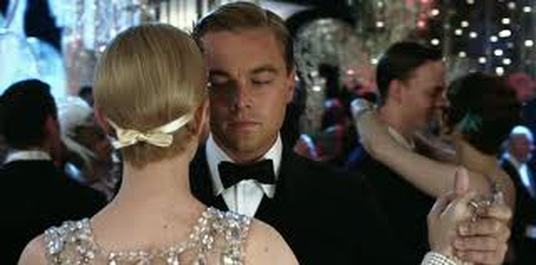 Baz Luhrmann's film adaption of 'The Great Gatsby follows a writer, Nick Carraway, a man who leaves the Midwest behind to come to glitzy, dynamic mecca also known as New York. In chasing his own aspirations of being a famous writer, Nick moves in next door to a mysterious millionaire, Jay Gatsby. Nick grows captivated by the mysterious Gatsby and his relationship with Jay's cousin, Daisy, which leads Nick into the world of the super rich, full of love, deceit and denial. As one would expect, Baz Luhrmann's adaption of the classic novel is a visual explosion of color, light and extravagance but the film lacks much else. The problem I've always had with Baz Luhrmann is he seems more interested in creating striking visuals than telling a story with those visuals. The film's visuals certainly capture the extravagance of this world but it never actually elicits any form of emotion or mood. Personally I didn't find the visuals all that impressive either as the film looked far too much like a cartoon for me, with its unnaturally vivid color scheme. I guess the biggest problem with the film is simply that it's bloated, long and really misses the mark at capturing Jay Gatsby's tragic plight and blind obsession. The story is told completely void of subtlety and lacks almost any emotional investment, as if Luhrmann is simply going through he motions, rushing to get to the next place where he can show off his extravagant visuals. While the film is rather true to the book, I wish Luhrmann would have attempted to make the film's themes contemporary, capturing how this story has many elements that still ring true today. Of course it does but Luhrmann seems quite complacent in telling this story set in the 20s, without much attempt at resonance for modern audiences. Oh wait, it did have a Jay-Z soundtrack! That was incredibly distracting and out of place. In the end, Luhrmann's version of The Great Gatsby is exactly what I expected - larger than life yet void of much meaning or feeling. 4.5/10 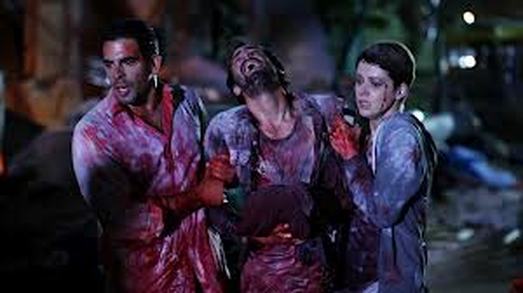 Taking place in Chile, Nicolas Lopez's Aftershock follows a group of tourists visiting the area. They are there to get inebriated and have a good time, which leads them to a trendy, underground nightclub. When a massive earthquake hits, the group is left struggling to find their way out of the rubble, soon realizing that the surface provides little solace from this living nightmare. Aftershock is the latest horror film from the mind of Eli Roth and like most of his work it's generic, silly, and void of creativity. All of the characters in Aftershock are bland and uninteresting, from Roth's nerdy character to the generic attractive female characters who only exist in the story to provide eye candy. The earthquake is really just the backdrop of Aftershock with much of the horror coming courtesy of prisoners who've escaped because of the earthquake. Even the violence in Aftershock provides little excitement with much of it being uninspired and un- interesting. You don't care at all about the fate of the characters in Aftershock, often wishing for their deaths, with the only positive being the realization that with each death you are one step closer to the end of this film. The filmmakers of Aftershock have spent a lot of time publicizing how proud they were to break the studio model in delivering a film like this to the masses but unfortunately the film looks very cheap and unauthentic. This particularly stands out in the production and set design that looks fake and unnatural at times. Aftershock is a boring and uninteresting horror film full of stupid character motivations, making it hard to find much to be interested in. 3/10 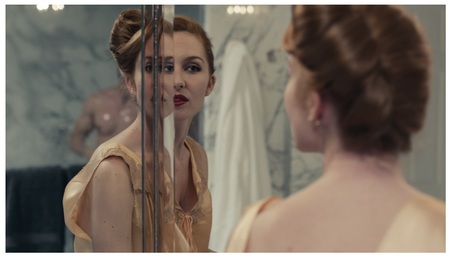 When I first heard about Kiss of the Damned I was cautiously optimistic. The film's poster being a direct homage to 70's euro Vampire tales from Jean Rollin or Jesus Franco only increased my expectations and the fact that it's John Cassavetes' daughter, Xan Cassavetes, debut feature certainly left much intrigue. Well after seeing the film I am happy to report that Kiss of the Damned is a sexy, violent vampire tale that relies on a heavy dose of atmosphere to overcome its narrative flaws. The film is the story of Djuna, a beautiful vampire who hunts animals as a way to quench her thirst. One night while out on the town she forms an instant connection with a human, Paolo, and while she initially resists her urges, she eventually give into her passion, turning him so they can live together forever. In this particularly story the vampire community lives among the humans, many choosing to quench their thirst through synthetic or animal blood, attempting to rid themselves of the monster within. Things become more complicated when Djuna's sister, Mimi, comes to visit, a vampire who doesn't exactly agree with suppressing her urges, leading to her threatening Djuna's happy ending. Kiss of the Damned relies heavily on its visual and audio design to create a brooding and hypnotic atmosphere, effectively transporting the viewer into the world of Djuan and Paolo. The sound design may go a little overboard at times, but for the most part it's very effective at entrancing the viewer in its spell. For better or worse the direction of the film is surprisingly assured, with certain scenes being well-crafted and executed while others sometimes border on pretension and excess. The film does a great job a capturing the eroticism of the vampires as well with quite a few scenes that do the 70's film justice. Besides its atmosphere what works so well about Kiss of the Damned is how the film captures the dichotomy between these two sisters, capturing how being a vampire could be viewed as a blessing or a curse. Kiss of the Damned has a lot of interesting ideas, like how humans are just as monstrous as vampires the only difference being that society has set laws and rules to make them civil. The film's weakest aspect is simply how the narrative unfolds with Mimi's character arch feeling rushed and uneven. While overall I didn't find this core arrative that interesting (sister vs. sister), Kiss of the Damned is an atmospheric experience and a welcome addition to the vampire genre especially given most of the crap coming out today. 7.75/10 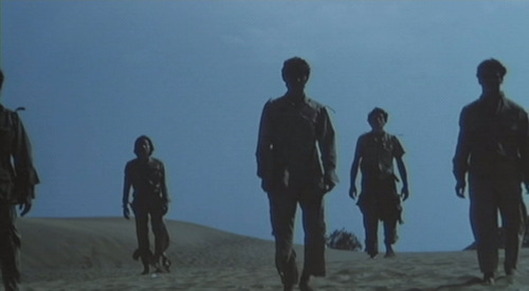 In a remote desert oasis, a large quantity of gold has been stashed by the Nazis during Wolrd War 2. Fifty years have passed since then but there is still talk of the vast treasure hidden underneath the sand. The mere idea of this fortune grabs the attention of treasure seekers all over the world but on their arrival they discover that the fortune is being guarded by an army of Nazi Zombies. Jesus Franco's Oasis of the Zombies is a film which I found myself conflicted on while watching. The film is certainly a "bad" film by traditional standards, consisting of mostly awful performances, a lousy script, and one of the most poorly paced films I can recall. Even with all of these faults Franco is still able to show such command over both sound and visuals that the elevate the film an impressive amount. With a harrowing soundtrack and emotive cinematography, Franco is able to create an hypnotic atmosphere that makes the film worth seeing. Considering the overall low-budget quality of the film, Oasis relies on this atmosphere a lot to create the horror and fortunately it delivers more so than it doesn't. Oasis definitely has some inventive camera-work too, at one point mimicking the look of a First Person Shooter far before the phrase/look even existed. Franco's film brings a ton of mysticism to the Zombie genre and it seems to be both a blessing and a curse because while this helps the film create a hypnotic effect, the pacing suffers greatly because of it. 5/10 |
AuthorLove of all things cinema brought me here. Archives
June 2023
|
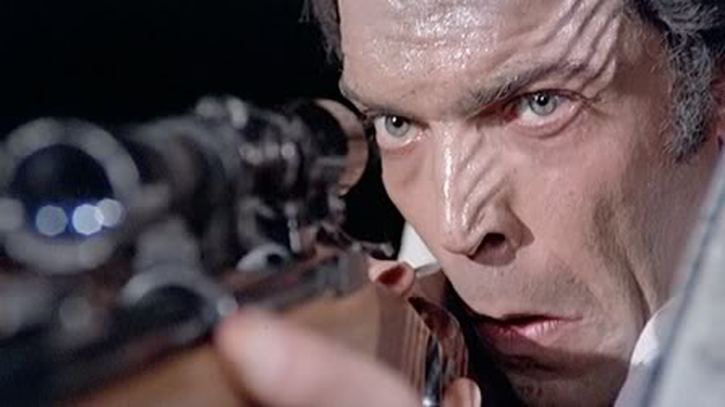
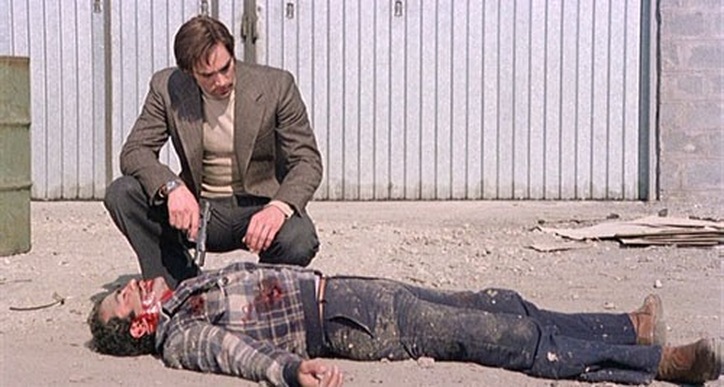
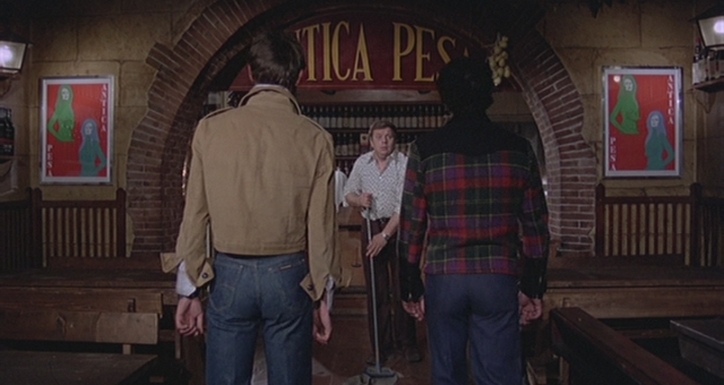
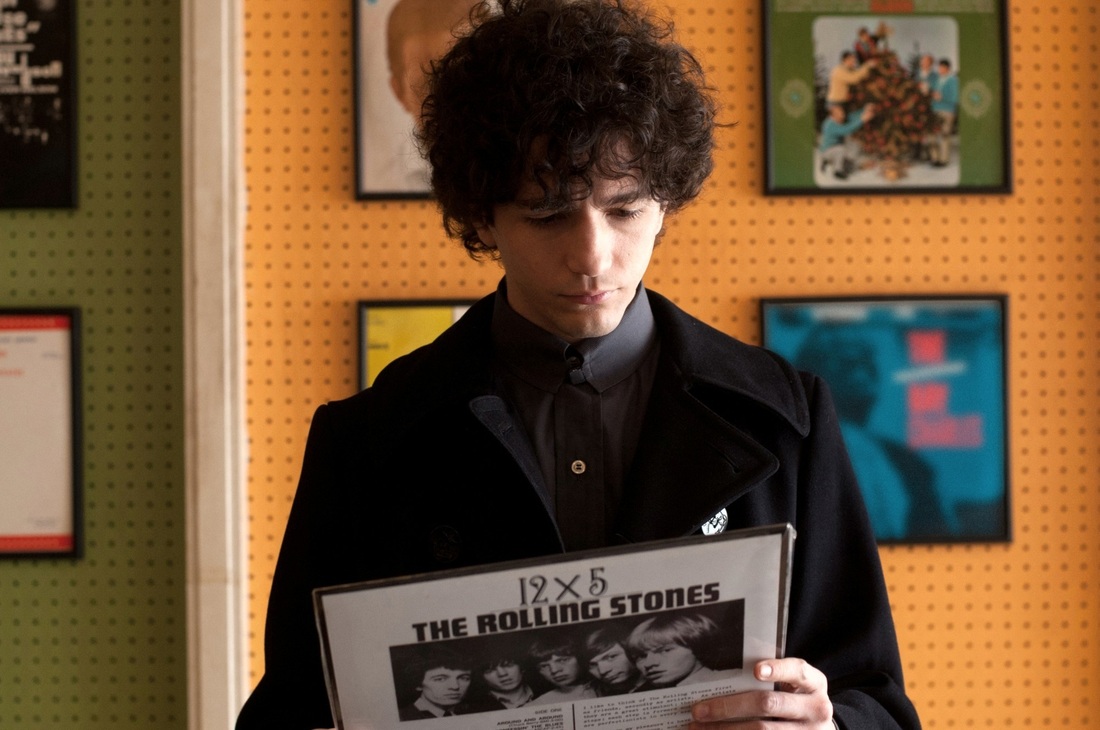
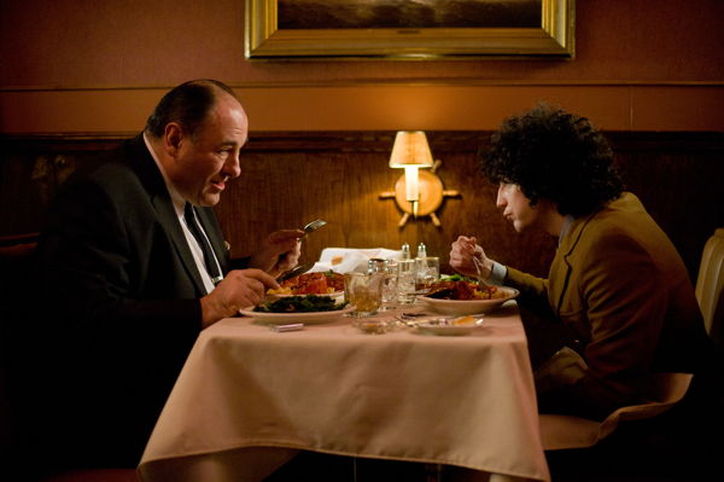
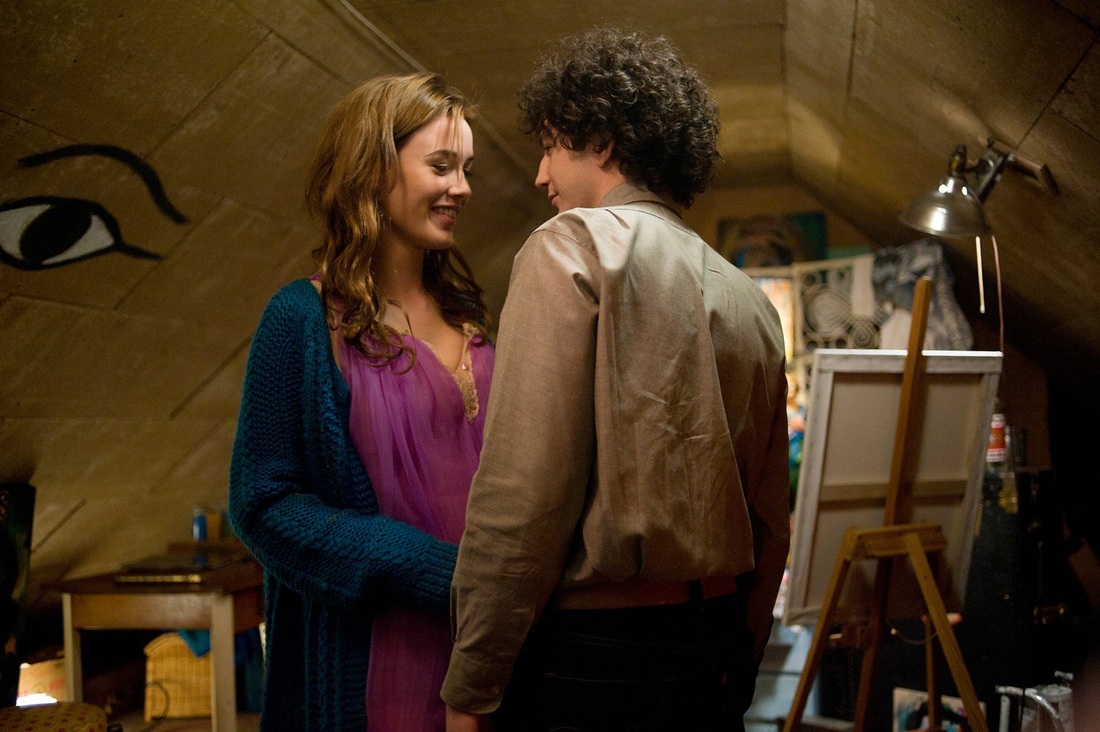
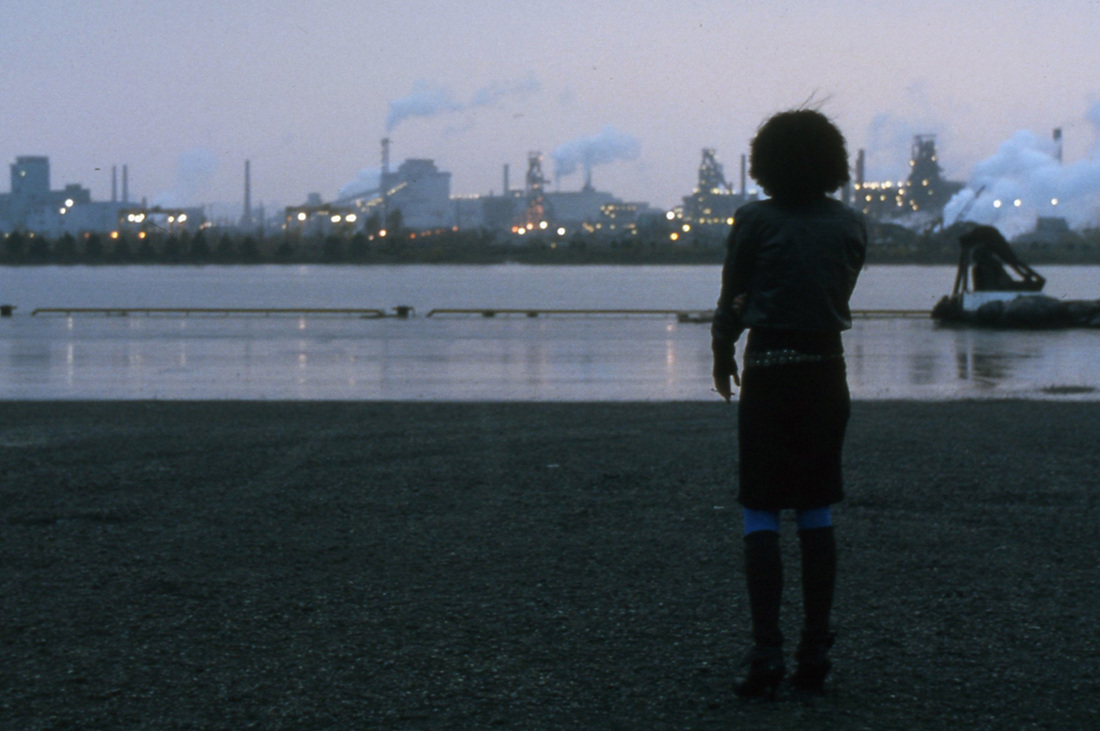
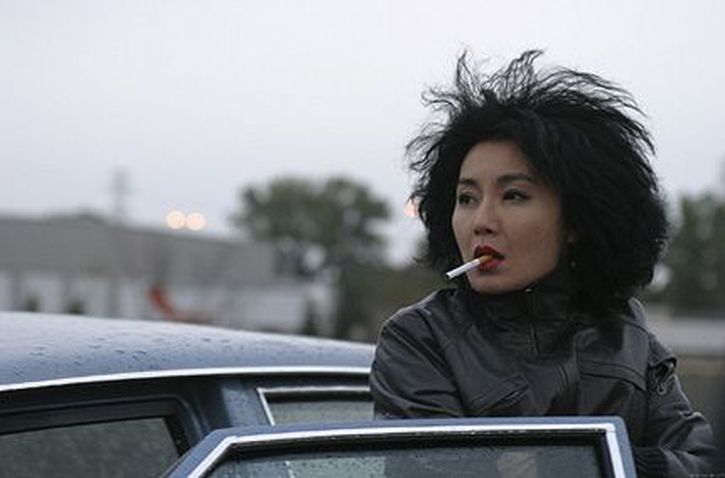
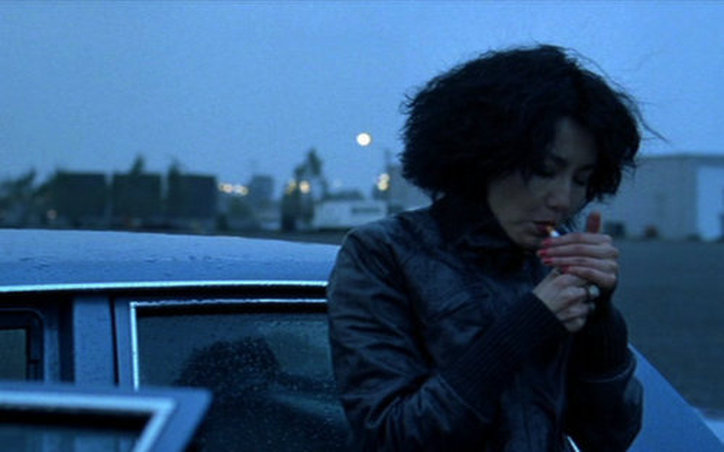
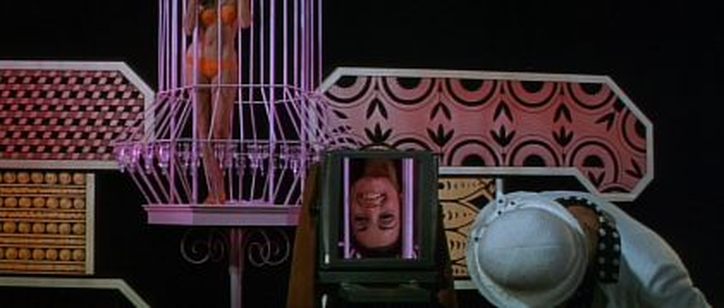
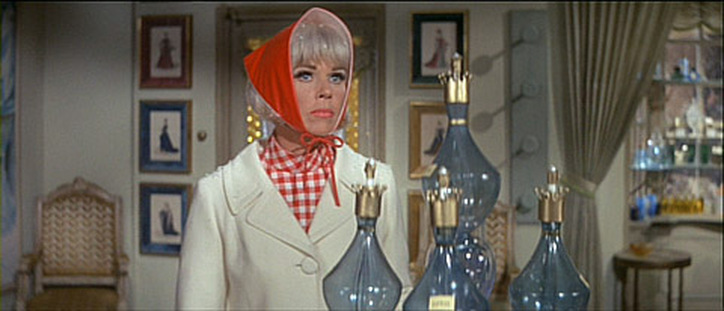
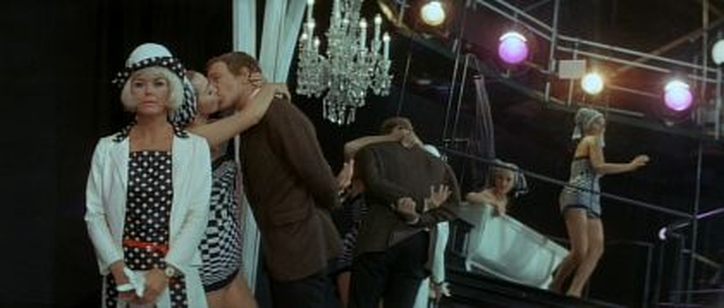
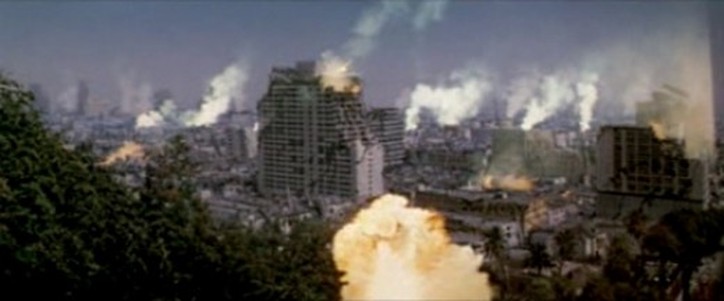
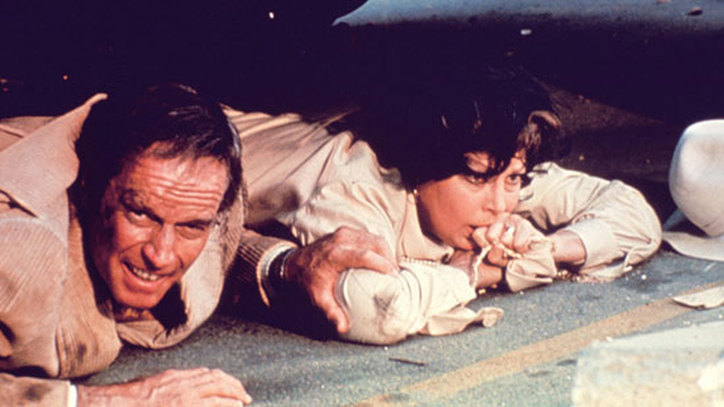
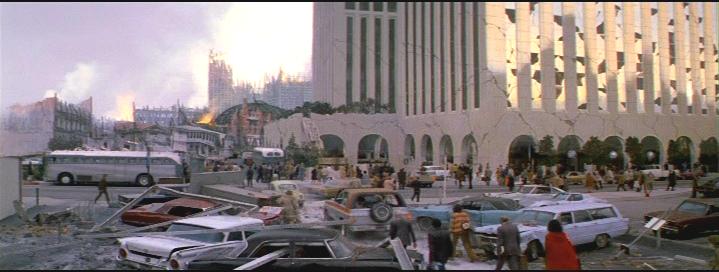
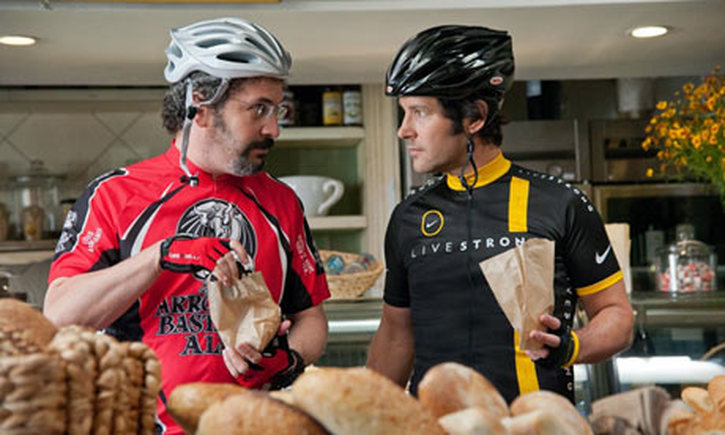
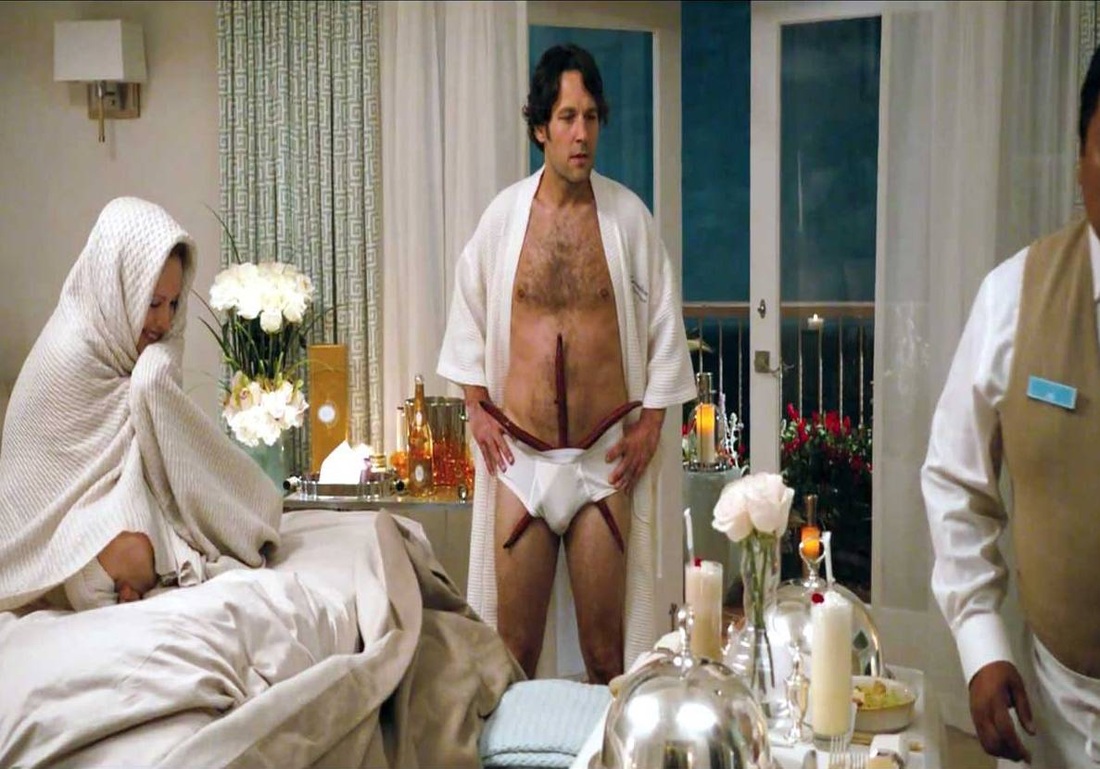
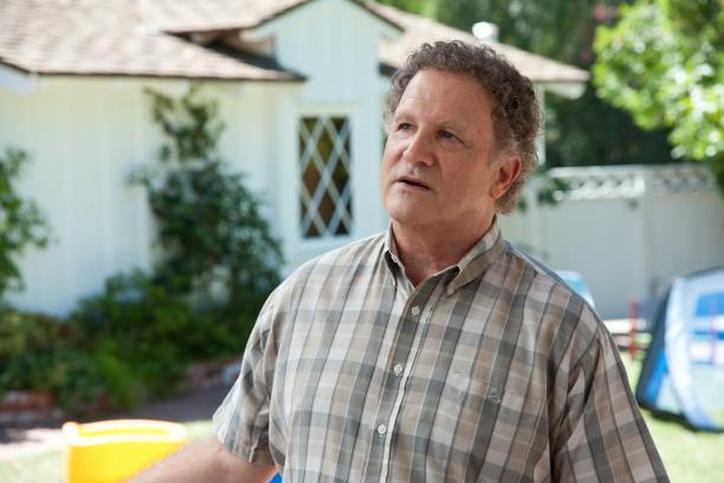
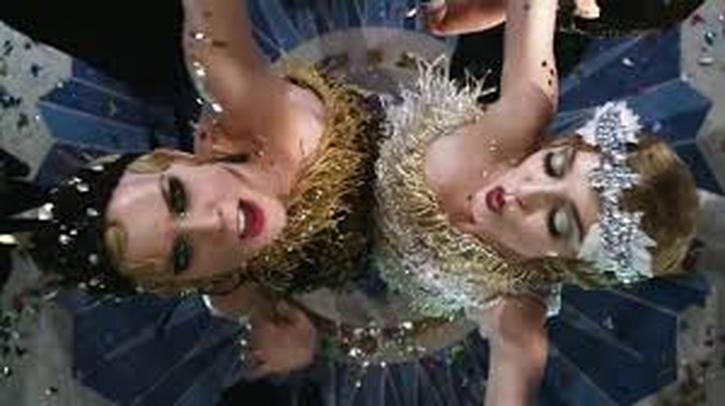
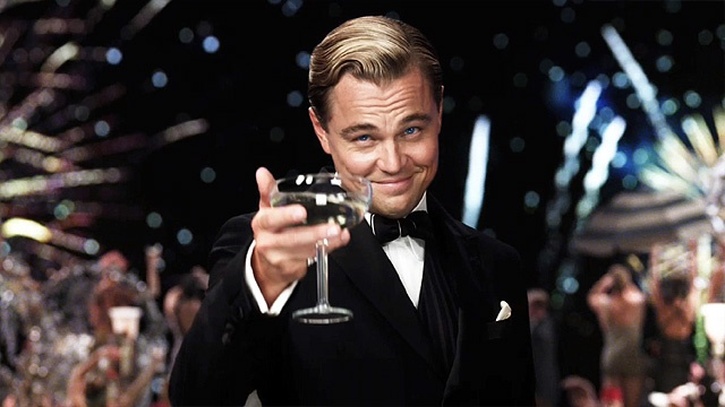
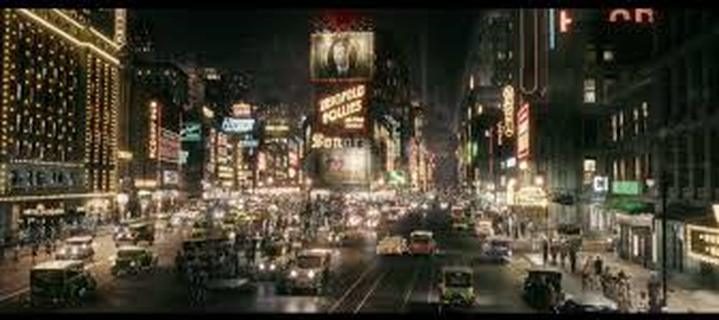
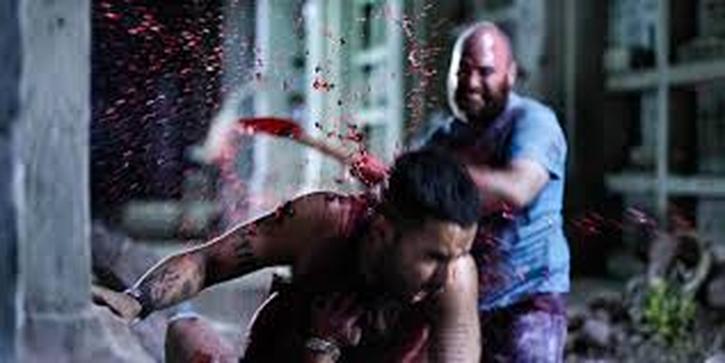
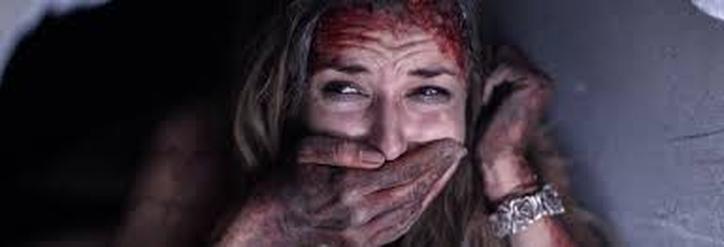
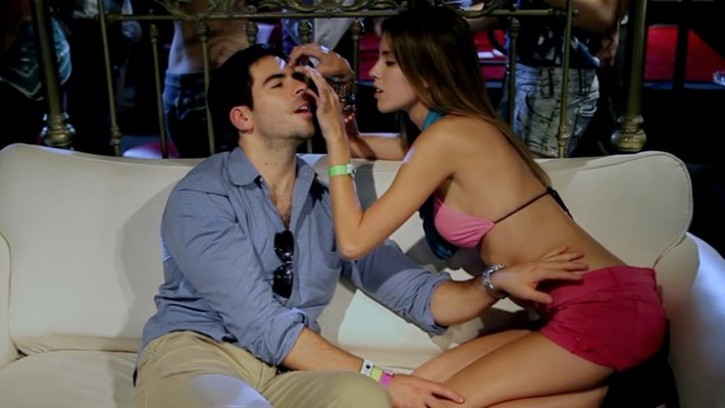
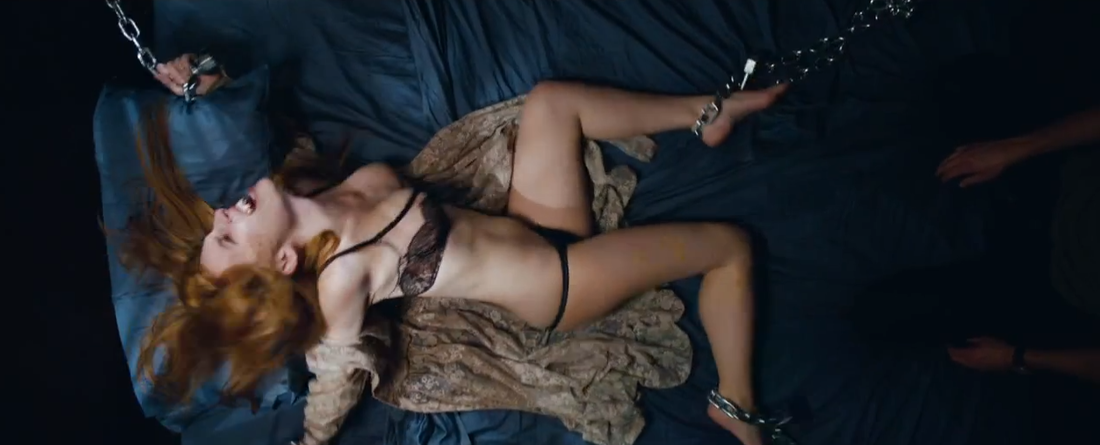
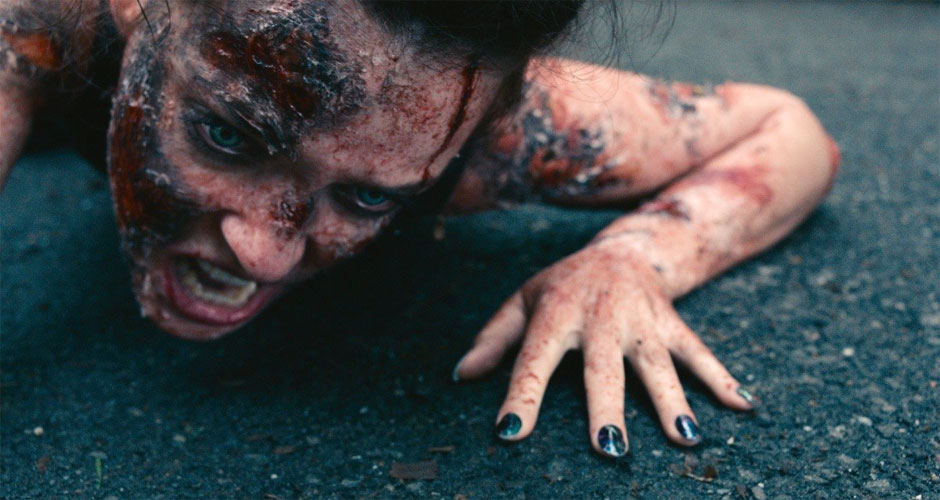
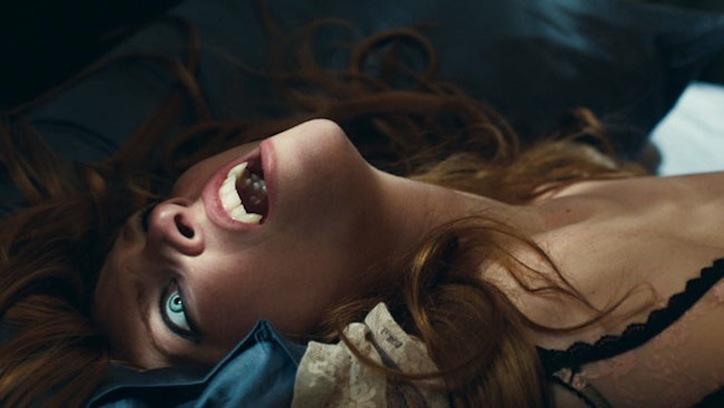

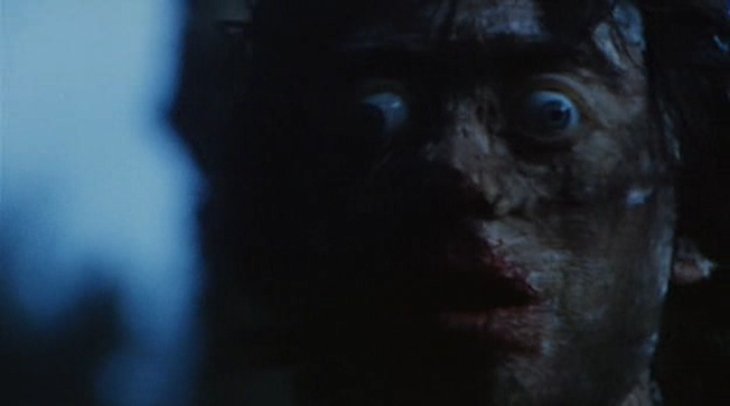
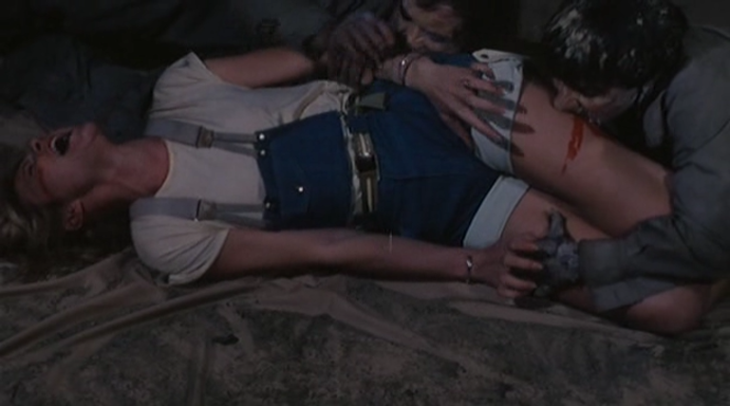
 RSS Feed
RSS Feed
